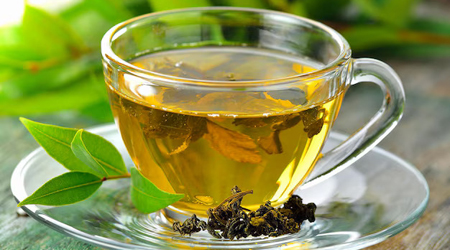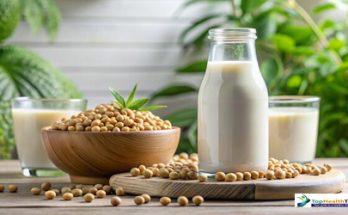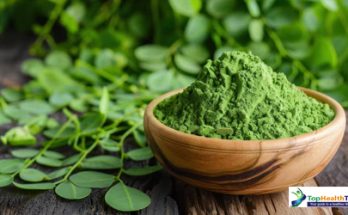Atherosclerosis, a condition marked by the buildup of plaques in the arteries, is a leading cause of heart disease and stroke. While conventional treatments are essential, natural remedies can significantly enhance cardiovascular health. This article delves deeper into evidence-based natural strategies for managing atherosclerosis.
Understanding Atherosclerosis
What Happens in Atherosclerosis?
Atherosclerosis starts with damage to the endothelial lining of arteries, often due to:
- High cholesterol: Particularly low-density lipoprotein (LDL).
- Hypertension: High blood pressure can injure arteries.
- Smoking: Tobacco smoke contains toxins that damage vascular tissues.
- Diabetes: High blood sugar levels can also damage blood vessels.
As plaques grow, they can restrict blood flow, potentially leading to serious complications, such as heart attacks or strokes. Early intervention and lifestyle changes can slow or even reverse the progression of this condition.
Dietary Interventions
A heart-healthy diet is a cornerstone for managing atherosclerosis. Here are more detailed dietary recommendations:
1. Increase Omega-3 Fatty Acids
Omega-3s play a vital role in reducing inflammation and promoting heart health. Good sources include:
- Fatty fish: Salmon, sardines, and herring.
- Nuts and seeds: Particularly flaxseeds, chia seeds, and walnuts.
- Algal oil: A plant-based source of omega-3s.
Research Insight: A systematic review in Circulation emphasizes that omega-3 supplementation can significantly lower triglycerides and enhance overall heart health.
2. Emphasize Fruits and Vegetables
A diet high in fruits and vegetables is linked to lower cholesterol levels and improved arterial function.
- Berries: Rich in antioxidants, they help combat oxidative stress.
- Leafy greens: Such as spinach and kale, which are high in vitamins and minerals.
- Cruciferous vegetables: Like broccoli and Brussels sprouts, known for their heart-protective properties.
Tip: Aim for at least 5 servings of fruits and vegetables daily.
3. Choose Whole Grains
Whole grains are vital for maintaining healthy cholesterol levels. Include:
- Oats: High in soluble fiber, which can lower LDL cholesterol.
- Quinoa: A complete protein and a good source of fiber.
- Barley: Another excellent source of soluble fiber.
Health Insight: Regular consumption of whole grains is associated with a reduced risk of cardiovascular diseases, as found in a study published in Nutrients.
4. Limit Saturated and Trans Fats
To manage atherosclerosis, it’s essential to minimize unhealthy fats:
- Saturated fats: Found in red meat and full-fat dairy.
- Trans fats: Often found in processed foods and baked goods.
Recommendation: Replace unhealthy fats with healthier options like olive oil, avocados, and nuts.



Herbal Remedies
5. Turmeric
Curcumin, the active compound in turmeric, possesses powerful anti-inflammatory and antioxidant properties.
- Usage: Add turmeric to smoothies, soups, or take it as a supplement.
Research Insight: A study published in Phytotherapy Research found that curcumin can significantly lower inflammatory markers associated with atherosclerosis.
6. Garlic
Garlic is renowned for its cardiovascular benefits, including its ability to lower cholesterol and blood pressure.
- Usage: Consume raw garlic, incorporate it into meals, or consider aged garlic supplements.
Research Insight: A meta-analysis in The Journal of Nutrition indicates that garlic can effectively reduce total cholesterol and LDL cholesterol levels.
7. Green Tea
Rich in catechins, green tea may improve endothelial function and lower cholesterol levels.
- Usage: Aim for 2-3 cups daily.
Health Insight: Research in The American Journal of Clinical Nutrition shows that green tea drinkers have a lower risk of cardiovascular diseases.

Lifestyle Modifications
Adopting a holistic approach can amplify the effects of dietary changes and herbal remedies:
8. Regular Exercise
Physical activity helps strengthen the heart and improve circulation. Recommendations include:
- Aerobic exercise: Such as walking, jogging, swimming, or cycling for at least 150 minutes per week.
- Strength training: Helps maintain a healthy weight and builds muscle mass.
Health Tip: Incorporate activities you enjoy, such as dancing or hiking, to make exercise more enjoyable.
9. Stress Management
Effective stress management can positively impact heart health. Techniques to consider include:
- Mindfulness meditation: Reduces stress and promotes relaxation.
- Yoga: Combines physical movement with breathing techniques.
- Deep breathing exercises: Help lower stress levels and improve cardiovascular health.
Research Insight: A study in Health Psychology found that individuals who practice mindfulness have lower blood pressure and improved heart health.
10. Maintain a Healthy Weight
Achieving and maintaining a healthy weight can significantly reduce the risk of atherosclerosis. Focus on:
- Balanced diet: Incorporate nutrient-dense foods.
- Regular physical activity: To help burn calories and improve metabolism.
Health Insight: Losing even a modest amount of weight (5-10% of body weight) can lead to improvements in blood pressure, cholesterol levels, and overall heart health.
Importance of Regular Check-ups
Monitoring your health is essential. Schedule regular check-ups with your healthcare provider to:
- Monitor cholesterol levels: Keeping track can help you make necessary dietary changes.
- Check blood pressure: Regular readings can indicate heart health.
- Screen for diabetes: Early detection and management are crucial for preventing cardiovascular complications.
Conclusion
Managing atherosclerosis effectively involves a combination of dietary changes, herbal remedies, and lifestyle modifications. By implementing these natural strategies, you can support your cardiovascular health and reduce the risk of complications. Always consult a healthcare provider before starting new treatments or making significant lifestyle changes.
Related posts for Nutrition & Food>>>
References
- Mozaffarian, D., & Wu, J. H. (2011). “Health Effects of Omega-3 Fatty Acids.” Journal of the American College of Cardiology.
- Aune, D., et al. (2016). “Whole grain intake and risk of cardiovascular disease: A systematic review and meta-analysis.” The American Journal of Clinical Nutrition.
- Ried, K., et al. (2013). “Garlic reduces cardiovascular risk factors: A systematic review and meta-analysis.” The Journal of Nutrition.
- Yokoyama, Y., et al. (2009). “Effect of green tea on cholesterol levels.” Journal of Cardiovascular Pharmacology.
- Kabat-Zinn, J. (2003). “Mindfulness-based interventions in context: Past, present, and future.” Psychosomatic Medicine.




